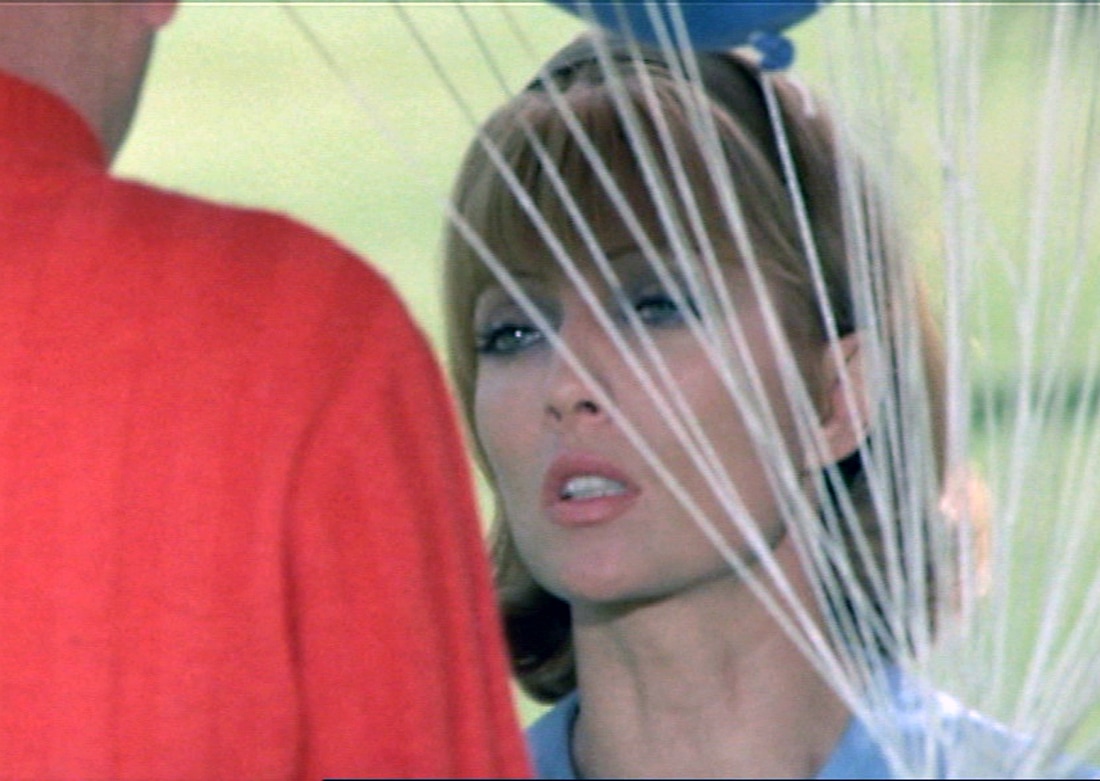curator's noteThis week, our writers were once again confronted with the task of discussing a film that resides outside the norms of film criticism. The bizarre and at often times difficult to watch LA RUPTURE (Claude Chabrol 1970) creates a hectic, drug-addled experience from start to finish which only increases in confusion as the rules of cinematic editing are loosened throughout its running time. The chaos that ensues will no doubt allow room for an stimulating debate with our writers. BELIEVING BUT NOT SEEINGGEORGE LEEThe theme of perception is quickly established in LA RUPTURE with Charles’ (Jean-Claude Drouot) parents trying to paint Hélène (Stéphane Audran), their daughter-in-law, in a negative light. Their ultimate goal by doing this is to gain custody of their grandson in the proceeding divorce trial. The assumed reason for their negative perception of Hélène is their belief that she is sexually promiscuous. This belief is presented when Helene was revealed to once have been a stripper, but as she describes it: “That didn’t last long”. Helene thinks Charles is a helpful and honest man simply because he is handsome and charming and Charles thinks that the young girl with mental difficulties will be able to be fooled by a simple wig. All these perceptions turn out to be false, leading to the characters varying downfalls with Hélène being betrayed and Charles’ true nature being revealed. LA RUPTURE is undeniably a critique of the bourgeois by painting the rich as evil and manipulative but the way this particular film handles this is to comment on the controlling class’s understanding of perception. What the rich believe as true must be so as they are the ones in power and have the most influence. It is up to Hélène - the representation of the working class - to call them out on their lies. The film was released on the tail end of the French New Wave when perceptions on cinema were changing. The film, therefore, takes a difference route of expression. By the third act, the film diverts away from logical narrative and leans towards surrealism. With the main characters drugged, we are witness to a dream-like sequence from Hélène’s point-of-view. It may not make much sense in contrast to films today but this is the point. We are forced to throw away our existing perceptions of the film and attempt to decide significant elements for ourselves. Every day this week a different writer will provide their perspective on our MUBIVIEWS film and each post will be open to comments from our readers. Watch LA RUPTURE on mubi.com until 5 May 2017 and join the discussion!
0 Comments
Your comment will be posted after it is approved.
Leave a Reply. |
MUBIVIEWSOne MUBI film, five perspectives, endless possibilities. Archives
July 2017
Categories
All
|



 RSS Feed
RSS Feed
